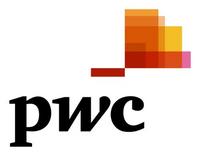Collaboration Among Industry Participants is Critical to the Success of Electric Vehicles, According to PwC Survey
 |
DETROIT--May 18, 2011: Collaboration between industry participants will be essential to bring alternative fuel applications to market, according to PwC's latest publication Charging Forward: Electric Vehicle Survey. While automakers continue to bring electric vehicles (EVs) to the marketplace, governments, local municipalities and utility companies are challenged with building the infrastructure required to support these vehicles long before mainstream consumption will take hold.
PwC surveyed over 200 executives across multiple industries, including automotive, technology, utilities, energy and government. Approximately one-third (33.8%) of respondents felt the lack of investment to modernize the grid is a primary roadblock preventing the widespread support of EVs. In addition, the lack of capacity during peak energy consumption hours also is a concern, as indicated by 31.1 percent of those surveyed.
While there is little doubt that collaboration between relevant parties such as the government, utilities, local municipalities, and private interests is needed to develop a sustainable EV infrastructure (35.3 percent of respondents felt each should share the financial burden), government agencies in particular will be creating ample financial incentive to other participants. In fact, this is already a reality as governments around the world have offered billions of dollars in the form of loans, grants, and rebates through various stimulus programs.
"Funding the development of a modernized infrastructure to support EVs remains a point of contention for industry participants," said Brandon Mason, Autofacts senior analyst.
Companies continue to work on achieving a balance between investing in development of new technologies and passing the costs on to the consumer. In addition, bringing the cost of EVs in line with internal combustion engine (ICE) vehicles remains a key challenge to achieve widespread adoption. Almost half of the respondents (41.6 percent) indicated that long-term cost savings is the primary reason consumers would be willing to pay a premium for an EV.
"As automakers continually improve the fuel efficiency of traditional ICE vehicles to meet emissions standards in the coming years, consumers are rethinking the additional premium required for an EV," continued Mason. "However, as fuel prices escalate, the demand for an EV or hybrid vehicle will likely increase in the near-term."
Nearly 68.8 percent of respondents believe hybrids and plug-in hybrid electric vehicles (PHEVs) are the most appealing to consumers overall.
In terms of the assembly outlook for hybrids and EVs, Autofacts is forecasting that annual production will reach approximately nine million units by 2020, representing roughly nine percent of global market share. Of that, nearly one third, or three million units, will be plug-in and pure electric vehicles. Significant volume increases are expected in the 2017-2020 timeframe as second and third generation EV systems and supporting technologies are rolled out.
For more information about PwC's sustainability capabilities and to download PwC's publication Charging Forward: Electric Vehicle Survey, visit: PWC.
About PwC's Charging Forward: Electric vehicle survey methodology
PwC's Charging Forward: Electric Vehicle Survey surveyed more than 200 executives from 10 countries from the automotive, utilities, energy, technology, government, finance, education and other sectors. Key results have been included, along with additional thoughts from PwC on the present and future outlook of EVs.
About PwC's Automotive Practice
PwC's global automotive practice leverages its extensive experience in the industry to help companies solve complex business challenges with efficiency and quality. One of PwC's global automotive practice's key competitive advantages is Autofacts®, a team of automotive industry specialists dedicated to ongoing analysis of sector trends. Autofacts provides our team of more than 4,600 automotive professionals and our clients with data and analysis to assess implications, make recommendations, and support decisions to compete in the global marketplace.
About Autofacts®
Autofacts, PwC's automotive forecasting service, is a provider of automotive market analysis, strategy development, and competitive intelligence to the world's leading vehicle manufacturers, automotive suppliers, and support organizations. Autofacts service offerings are available on-demand, for one-time purchase and through an annual subscription basis to access the on-line portal with Autofacts' proprietary data query tool. For more information regarding Autofacts, please visit Autofacts .


